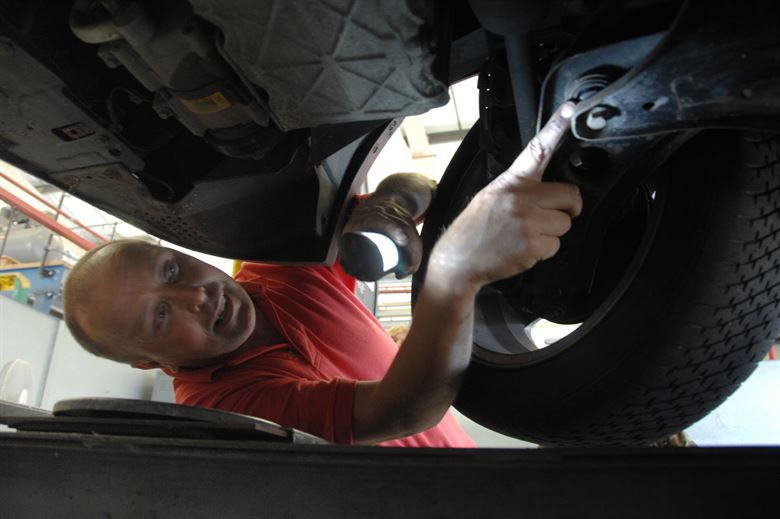Your MOT is a vital check that is undertaken on your vehicle to ensure its safety and roadworthiness. A regular MOT service check is a legal requirement for vehicles over three years old.
There are set checks and tests that are undertaken on every vehicle as part of an MOT, including tyre tread and pressure, steering, brakes and brake pad maintenance, lights and visibility, engine function, air and fuel filters and much more besides. If your car is judged to have a dangerous fault after its MOT is complete, it will not be legal to drive it.
Upon failing to keep up to date with your car’s MOT service check, you may be fined £1000 on the spot if you are caught by the police. You insurance will also be invalidated and will not cover you if your vehicle incurs damage.
Read on for all you need to know about MOTs, laid out in this handy guide by the experts at Dronsfields. We’ll be answering questions such as “when does my car need an MOT?” and “how long before my MOT ends?”.
When Does My Car Need an MOT?
Once your vehicle has reached three years of age, you’ll need to start taking it in for a regular MOT service check. This should take place once a year at the very latest.
Remember, you can arrange your MOT for up to one month (minus a day) before the one year anniversary of your previous check. It can take place almost a month early, which will mean that your current MOT will last 13 months instead of 12.
How Do I Know if My Car Needs an MOT?
“How often does a car need an MOT?” is a question that is asked surprisingly regularly, making it clear that the time at which you should be having your vehicle checked isn’t always particularly clear in the first place. However, if your car is new to you, or you can’t remember when it was last taken for an MOT, this can get even more confusing.
When you first purchase your vehicle, you should receive full information or paperwork along with it, including a log book or V5C, which should contain information about your car’s last MOT date. You should then make a note in your diary or calendar to arrange its next MOT for the same time the following year at the latest.
If you have misplaced information about your vehicle’s last MOT date, you can check its history through the gov.uk website. All you’ll need is your registration number. However, if you want to check the location at which the MOT was performed, you’ll need access to your car’s V5C.
The only vehicles that don’t require an MOT are goods vehicles powered by electricity and registered before 1st March 2015, tractors and specific “classic” vehicles. Lorries, buses and trailers do not require an MOT as they are subject to separate annual checks.
What Do I Need for an MOT?
You won’t need any paperwork in order to get an MOT service check if you’ve done it before with the vehicle in question, though it’s a good idea to bring your appointment letter along with you. The only exception to this is if your vehicle is currently the subject of a Certificate or Notice of Refusal, notifying of any failure it has experienced as the result of a previous test. If that’s the case, you should bring this document along too.
If you are taking your vehicle to its first MOT service check, you’ll need to have its V5C with you.
You won’t need to wait around for long when you take your car for an MOT – checks usually take no longer than an hour.
So, in answer to some of the most common questions involving MOT checks:
How often does a car need an MOT? – You only need to take your car for an MOT once a year.
When does my car need an MOT? – You won’t need to arrange an MOT for your car until it’s three years old.
How long before my MOT ends? – Your most recent MOT check will remain valid for one year. You should arrange for your next check to take place as close to the one year anniversary of the last one as you can, but you have leeway of up to one month (minus a day) before this time, but not after. If you continue to drive your car after its previous MOT has run out, you may be fined and your insurance will no longer be valid. This is why it’s vital to make sure your vehicle’s MOT is up to date!



